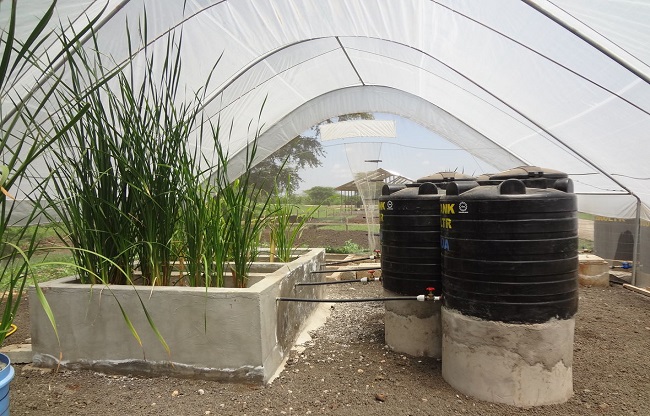Linköping University in South African water project

A model of a wetland.
Photo: Karin Tonderski
A senior lecturer in the division of biology at Sweden’s Linköping University (LiU) has been awarded 3 million kronor (about $318,000) over three years to contribute to the installation and evaluation of wetlands in South African informal townships.
Karin Tonderski, docent in ecology, received the funding from Formas to participate in the project together with Genevieve Metson, research fellow in theoretical biology at LiU, according to a press release on the university’s website.
Formas is a Swedish government research council for sustainable development.
It provides money for research and innovation, develop strategies, perform analyses and conduct evaluations in the areas of environment, spatial planning and agricultural sciences.
The project is part of the EU Water Joint Programming Initiative, a research group under the leadership of researchers from The Centre in Water Research and Development at Wits University in South Africa and plans to construct wetlands in some of South Africa’s informal townships.
“Special installations will be built to receive greywater. The greywater then passes through the artificial wetlands, a bed of plants and gravel, which deals with the most serious contaminants in a natural way, ” the release adds.
The Helmholtz-Centre for Environmental Research in Leipzig, Germany and Linköping University are collaborating with Wits University.
“An important part of the project will be to investigate how the implementation proceeds. We must discover the needs of the residents, how they can get involved, how the system should be designed to make it easy to use, and how to organise ownership and maintenance to ensure that the system can function in the long term”, says Tonderski.
The project “Accessible Greywater Solutions for Urban Informal Townships in South Africa”, URBWAT, is now designing a system for wetlands at Alexandra, Gauteng.
It will also investigate a similar project in Langrug, Stellenbosch, where a system for purification of greywater has already been installed, but not yet evaluated. The total budget of the program is EUR 840,000 (about $945,000).

